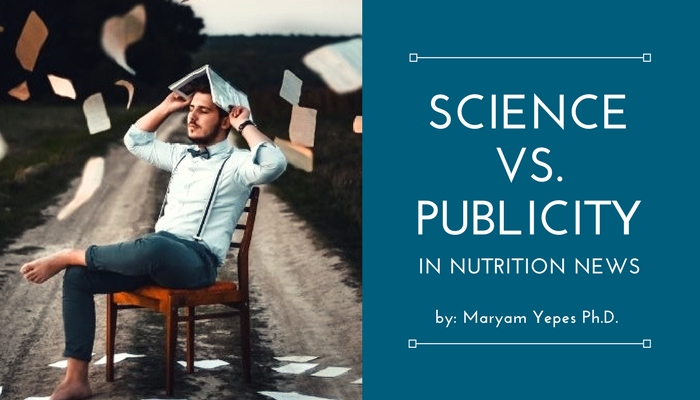
Which articles to read, and which articles to avoid, when looking for reliable nutrition information.
I was recently asked to comment on an article on foods to eat and to avoid for better brain health.
It took me less than a minute to realise that article was not a reliable source of information, so instead of commenting on its content about what foods to eat or to avoid, I decided to comment about what articles to read and what articles to avoid when looking for reliable nutrition information online.
Unfortunately, it is not easy for many people to differentiate between reliable nutrition information vs. simple marketing content.
This used to be a favourite class exercise with my students at EHL, I would ask them to choose a nutrition-related article online and assess the validity of its content by cross checking it with scientific information. When students presented their articles and their findings, we were all shocked at how much nonsense you can find published on the web under the disguise of nutrition and health content.
But Why?
It’s simple... nutrition is a one of those popular topics that sells… you can sell a dream of looking young in a slim muscular body, with a healthy skin glow, living a healthy and active life by advising to eat these foods and not these others…. Who wouldn’t buy that? What these articles don’t realise is that they cause more harm than good for overall public health, by publishing false information, they confuse the reader and the right information is diluted and lost in the sea of misleading nutrition information. So how to detect false nutrition information? Here are some of my suggestions:
1. Where is it published?
Before even reading the article, first and foremost, look at the source. Who is the organisation, the company, the website or the magazine publishing this information? Who are they? what is their mission? what are they selling? Why do they publish on this topic? Trying to answer these questions will help you understand the motives behind the articles. It will help you see if the article serves a marketing purpose or it’s purely informative content for public health. For example, it would be obvious to see this, when an article on the benefits of a healthy diet is found on a website of a company selling vitamin supplements. Topics like food and nutrition tend to be popular on websites where advertising is their main source of income, and such articles always tend to publish dramatic food and nutrition content to increase their visits and clicks rates.
My recommendation for reliable nutrition sources are:
The health ministry or the public health department of government of any major city or country, as well as international sources such as WHO and FAO, First tier university publications with a dedicated department for nutrition and health research, Publicly funded national nutrition associations or professional dietetics associations, And of course the original academic papers in scientific journals if you have more training and experience in the field.
2. Who wrote it?
Unfortunately, there are many who are interested in the topic of nutrition and would like to have a career in this field, but do not invest the time and the energy towards obtaining a professional degree such as a university degree in dietetics or human nutrition. The author of the article needs to have completed some studies on the complex anatomy of human body and has learned about the many intricate pathways that food travels through before being transformed for our physiological and nutritional needs. So look at the name of the author, find out about their area of expertise. It’s best if the author has a university bachelors or master’s degree in dietetics, nutrition or a health related field such as medicine, nursing, physiology or other fields in human health.
3. When was it published?
Like any other field in science, nutrition research leads to continuous discoveries about the relationship between different dietary choices and our long term health. We are constantly learning about new relationships between our diet and our health, while considering many other factors such as physical activity, stress, pollution etc…, and it’s almost impossible to draw a linear causal association or conclusion between specific foods or diets and its contribution towards health. So to make sure it’s a reliable source of information the article should cite references with a list of scientific papers to support its content and its best if these references are as recent as possible. These are some of my suggestions based on years of experience trying to undo the mis-information people have about nutrition and health and I hope this has helped you be more aware of not only what you eat, but also what you read.
for those eager to read the most reliable information, here is some of my favorite sources of nutrition information
Maryam Yepes Ph.D.
Founder of Myravan solutions, Maryam completed her bachelors and master’s degree in Dietetics and Human Nutrition from McGill University, and continued to pursue her studies with a Ph.D. in Public Health from University of Lausanne. For the last two decades, she has worked as dietitian and public health expert in clinical settings, with the food industry and the culinary field and she continues to share her knowledge through seminars, teachings and consultations for food and hospitality professionals.
Maryam Yepes est une diététicienne diplômée avec un doctorat en santé publique et passionée par la science et l'art de la gastronomie
